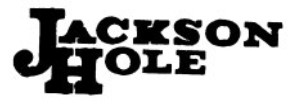On February 2, in In re: Vox Populi Registry Ltd., the Federal Circuit affirmed the Trademark Trial and Appeal Board’s (TTAB) refusal to register a standard character mark and a stylized mark, both related to the “.sucks” generic top-level domain (gTLD). The court held that neither mark served as a source-identifier, and that the stylized mark failed to create a commercial impression separate from the characters in the mark.
Vox, a domain registry operator for the “.sucks” gTLD, filed a trademark application for the following stylized mark:

Vox also filed a trademark application for the standard character mark .SUCKS. The U.S. Patent and Trademark Office (USPTO) refused to register the subject applications based on their failure to function as trademarks when used in connection with the specified domain name registration services.
On appeal, the TTAB determined that consumers will not perceive the standard character mark .SUCKS as a source identifier, but “as one of many gTLDs that are used in domain names.” Moreover, the TTAB concluded that the stylized form of the mark neither creates a separate commercial impression, nor possesses a sufficient degree of distinctiveness to warrant its registrability.
Vox appealed the TTAB’s decision with regard to the stylized form of the .SUCKS mark. In its analysis, the Federal Circuit considered whether the mark at issue served as a source identifier. Based on the Federal Circuit’s assessment of prior decisions of the TTAB, the court determined that consumer perception must be evaluated to establish whether a proposed mark functions as a source identifier. More specifically, a court must review the specimens of use and other evidence of record demonstrating how the mark is used in the marketplace to determine the manner in which the relevant public perceives the designation.
Although Vox did not appeal the refusal of the .SUCKS mark in standard characters, it presented arguments regarding the mark’s functionality as a source identifier and registrability as a service mark in its opening brief. The Federal Circuit reviewed the TTAB’s factual findings related to the .SUCKS standard mark for substantial evidence. Such factual findings included specimens from Vox’s website which showed use of the mark to refer to a product, not a source of services. Additionally, the court considered several declarations, including a statement from the company’s COO which detailed advertising and sales volumes. However, the court did not find such evidence to be persuasive and concluded that the TTAB did not err in refusing to register the designation.
Lastly, the court considered whether the design of the .SUCKS mark in stylized form contributed to its registrability. A stylized mark that is unregistrable may be registrable if the features of its design “create an impression on the purchasers separate and apart from the impression made by the words themselves.” The Federal Circuit assessed the designs of several marks, including:


Of which the TTAB previously found to create a “striking” or “separate” commercial impression due to the sufficient distinctiveness of the elements of the marks. In contrast to the foregoing marks, the Federal Circuit determined that the stylized .SUCKS mark failed to create a separate commercial impression based on the TTAB’s reasoning that the designation included characters that were identical in height and width and commonly used as a font style of computers. Thus, based on its analysis, the court affirmed the TTAB’s refusal of the application for the stylized .SUCKS mark.
The Federal Circuit’s decision applies existing trademark law to gTLDS and provides further guidance regarding the registrability of such domain names. Applicants who are seeking registration of gTLDS as trademarks should be aware that the USPTO may refuse to register such matter if it fails to function as an identifier of the source of goods or services. Therefore, when filing a trademark application for a gTLD, applicants should accumulate evidence that demonstrates consumers’ perception of the mark as a source identifier to attempt to overcome the USPTO’s likely issuance of a refusal.
For more information on this topic, please contact Fitch Even attorney Kerianne A. Strachan, author of this alert.
Fitch Even IP Alert®
Kerianne A. Strachan
Kerianne A. Strachan focuses her practice on domestic and foreign trademark prosecution, clearance, enforcement, and brand protection, as well as contract drafting and negotiation. She counsels clients that include Fortune 500 corporations, multinational manufacturers, middle-market ventures, nonprofit organizations, small businesses, and startups.


